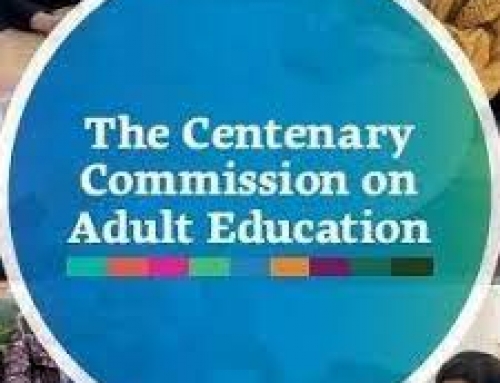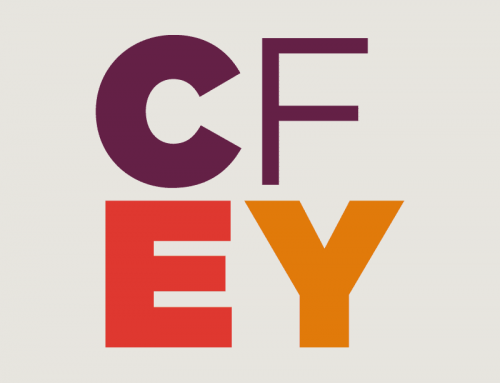This post is by Maggie Browning is a member of the Fabian Society, a secondary school teacher and Labour councillor in London.
Comprehensive Future is hosting a webinar on September 19th at 11.30am, ‘What Would a Socially Just Education System Look Like?’ In the lead up to the event we have asked several organisations to discuss what a socially just education system means to them, read the full series of posts here.
What could a socially just education system look like?
A socially just education system is key to maintaining a healthy democracy and equipping young people with the knowledge and skills to become informed, active citizens. Schools and the curriculum are central to that but so are widespread policy reforms such as lowering the voting age to 16 and introducing automatic voter registration.
Why does democratic education matter?
Politics since the 2008 financial crash has become increasingly turbulent and polarised. In the UK, we have had four general elections in ten years, to say nothing of Brexit and its consequences. Abroad, we have seen the spread of populism across Europe, the rise and fall of Trump and we continue to contend with the ever-present climate emergency. If young people are to navigate these seismic shifts in our political world, then our education system must ensure they are ready to do so.
The case for political education on the curriculum
In 2001, the Labour government introduced Citizenship as a discreet subject into the national curriculum. Led by David Blunkett, the then Education Secretary, Citizenship was meant to fill a gap in the national curriculum and educate children and young people about the fundamentals of our democracy: how voting works; the ideologies of different political parties; human rights; law and the justice system; the differences between local and national government; public spending; media bias and the press; and how to be an active citizen and effect change in your community. After an initially promising decade under Labour, successive Tory governments have consistently undermined the subject. The advent of the Ebacc has marginalised creative subjects like music, art and drama but non-Ebacc humanities subjects like religious studies and Citizenship have also lost out. As a newer subject, Citizenship is particularly vulnerable and in many schools it has been relegated to form time or combined with PSHE. The numbers have grown year on year but it still is only a tiny minority of pupils who leave school with a Citizenship qualification, with only about 3% of pupils taking Citizenship GCSE each year. The subject is often not taught by subject specialists, further undermining its status.
Other subjects do give students the opportunity to receive an education about our democracy but these are mainly at A-Level, notably in politics and economics. History teaches the history of our democracy but the explicit teaching of political and social issues as they exist today is what is desperately needed. This powerful knowledge is key to equipping young people with the necessary skills to challenge those in power, participate in community organising and fully take part in our democracy. The rise in conspiracy theories and ‘fake news’ makes it all the more important that young people receive their political education from subject specialists in the classroom rather than via questionable news sources online. Citizenship education focuses on approaching complex issues in a balanced away, as well as evaluating the strength of different arguments and reaching a clear personal viewpoint based on a consideration of the evidence. When young people go to the ballot box for the first time, it is important that they have the necessary tools to know what it is they are voting for.
Engaging young people in politics beyond the classroom
A strange dichotomy exists in British politics where young people seem to be both simultaneously apathetic and also very politically active. Voter turnout figures tell a familiar story– the older and more affluent are much more likely to vote, with a turnout of 47% amongst 18-24 year olds and 74% amongst the over 65s in the 2019 general election. According to IPSOS Mori, voters in the AB social class category had a turnout of 68% in 2019, whereas voters in the DE social class category had a turnout of 53%. Combine age and social class, and young voters on the lowest incomes are least likely to vote, with a turnout of just 43% at the 2019 general election. On the other hand, young people are at the forefront of the big issues of our times, leading the way in the Black Lives Matter movement and the climate school strikes (to name just two).
What can be done to increase political engagement amongst all our young people? A start would be to lower the voting age to 16 across the UK for all elections. 16 and 17 year olds can already vote in Scottish and Welsh elections and this has gone hand in hand with democratic renewal in these nations. Lowering the voting age would also mean young people being registered to vote while still at school. Schools could provide lessons for this age group that focus specifically on the voting process and host opportunities for them to hear from local candidates during an assembly or hustings. The time has also come to make voter registration automatic. The young and those in precarious living situations are the least likely to be registered to vote, either because they are students and living away from home or because they have to move regularly in an unpredictable rental market. Making it as easy as possible for everyone to vote is key in increasing voter turnout amongst the young and disenfranchised.
Conclusion
An apathetic or disengaged electorate is the preferred status quo for those in power who do not wish to be challenged. Equally, an electorate who feels disempowered and with no routes to effecting real change is more likely to fall victim to conspiracy theories and dangerous populism. A healthy democratic culture is essential for fighting against this trend and our education system needs to be central to that. High quality political education taught by subject specialists, accessible to all children, alongside policy changes to extend the franchise and to make voting easier for all will help to shape a socially just education system and renew our precarious democracy.
#
Book your ticket to the ‘What Would a Socially Just Education System Look Like?’ webinar HERE.
Comprehensive Future needs your financial support, please consider donating to help us continue our campaign. DONATE NOW.



